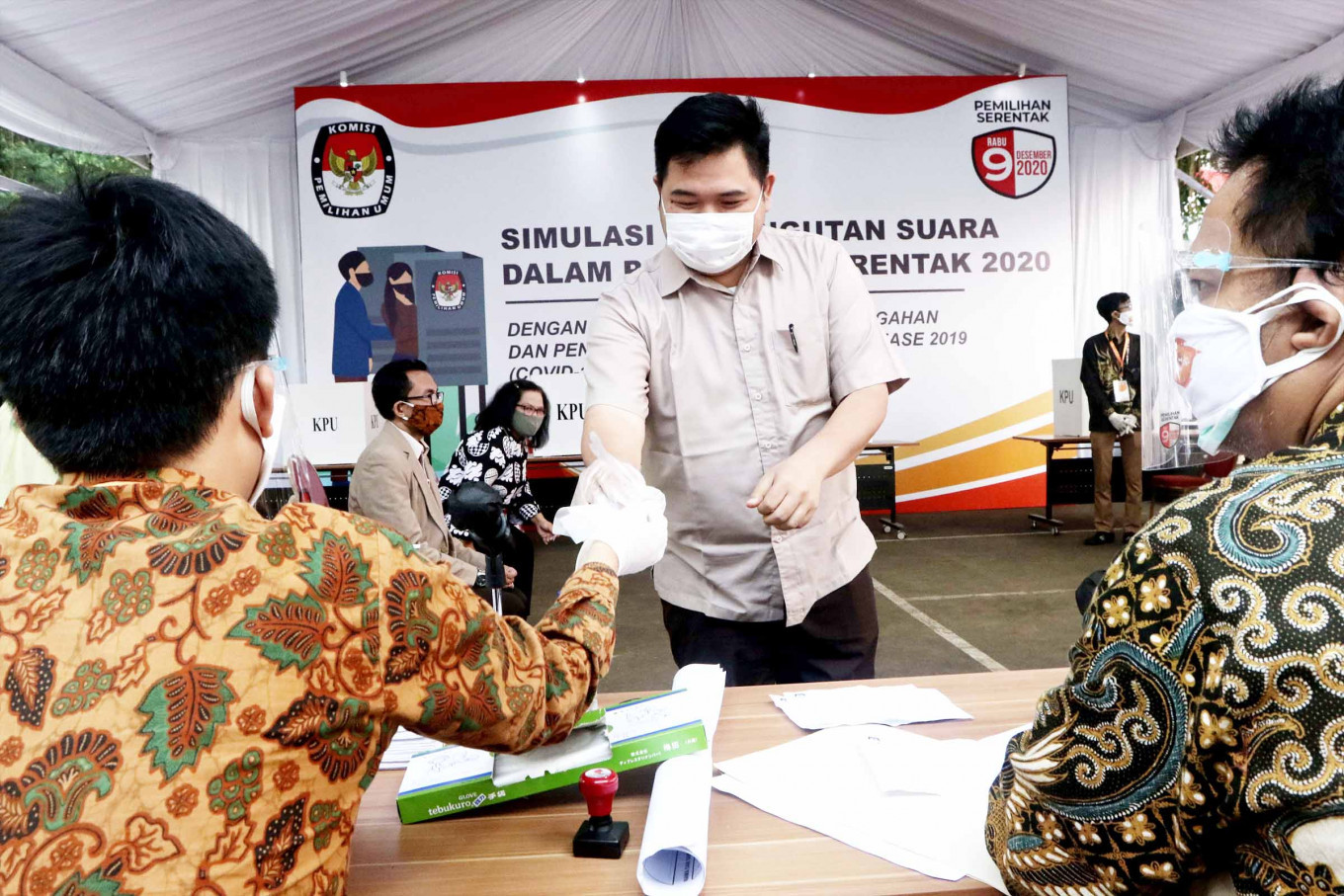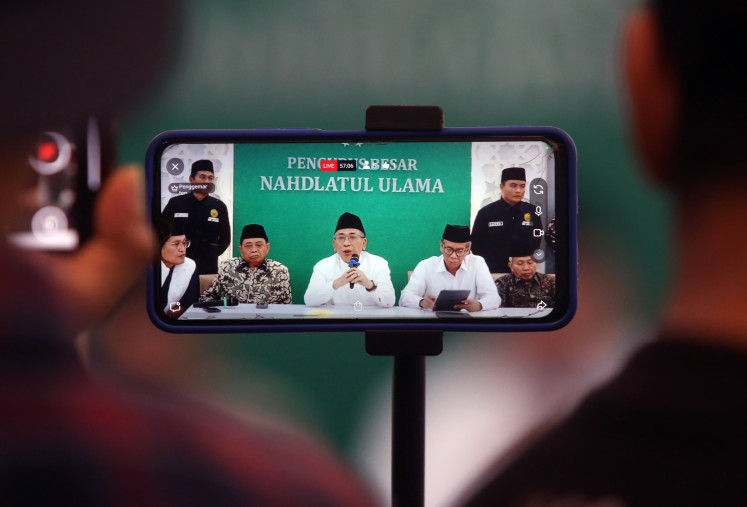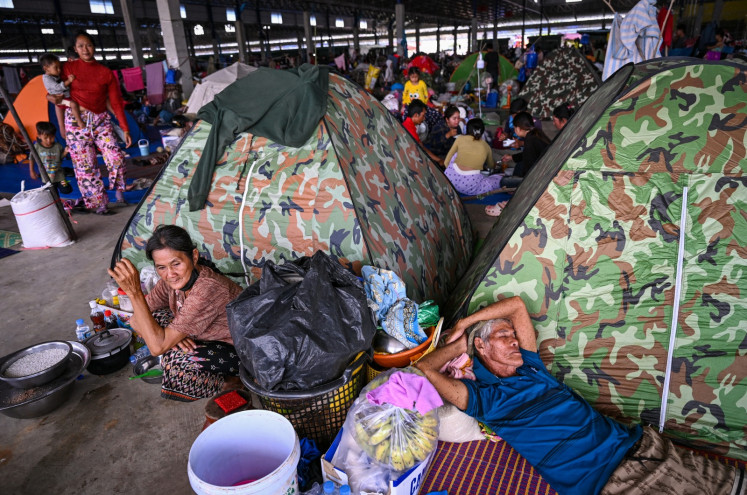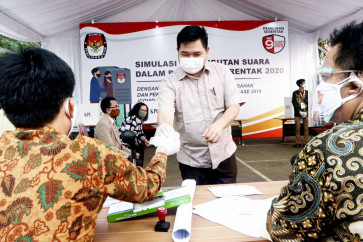Popular Reads
Top Results
Can't find what you're looking for?
View all search resultsPopular Reads
Top Results
Can't find what you're looking for?
View all search resultsAnalysis: A run-off in presidential election most likely
Change text size
Gift Premium Articles
to Anyone

While polls have indicated that the Indonesian presidential race will most likely be a two-round affair because three pairs are contesting, the leading ticket in electability ratings maintains that winning the election outright in February is still possible.
Presidential candidate Prabowo Subianto and his running mate Gibran Rakabuming Raka have enjoyed consistently high electability ratings over the last few months. In the past month, the pair’s rating has continued to inch closer toward 50 percent, giving their camp the confidence that the election would be a cinch for the front-running pair.
A survey conducted by Indikator Politik Indonesia released on Dec. 26 showed that Prabowo-Gibran reached a rating of 46.7 percent. Ganjar Pranowo and running mate Mahfud MD trailed in distant second with 24.5 percent while Anies Baswedan and his VP candidate Muhaimin Iskandar followed not too far behind with 21 percent. Moreover, 7.8 percent of respondents were still undecided.
A survey by Indonesian Survey Circle (LSI) conducted on Dec. 17-23 found slightly different results. While Prabowo-Gibran remained in the lead with an electability of 43.3 percent, it was the Anies-Muhaimin pair that came second with 25.3 percent, followed by Ganjar-Mahfud with 22.9 percent. Similarly, 7.9 percent of the respondents had yet to decide who they would vote for.
Similar results were also reported in a poll by the Centre for Strategic and International Studies (CSIS) conducted on Dec. 13-18, where Prabowo-Gibran placed first with a rating of 43.7 percent, followed by Anies-Muhaimin at 26.1 percent and Ganjar-Mahfud at 19.4 percent. For this survey, 6.4 percent of respondents kept their choice of ticket confidential and 4.5 percent of respondents were undecided.
Based on electability ratings alone, it is looking quite optimistic for the Prabowo-Gibran pair. However, Gadjah Mada University (UGM) School of Social and Political Sciences lecturer Nyarwi Ahmad assessed that although Prabowo-Gibran have consistently taken the lead in most polls, their ratings have stagnated at 40-46 percent. Ideally, according to Nyarwi, their rating should have reached at least 56 percent by now and this in itself indicates that the election would go into a run-off.

What’s more


















